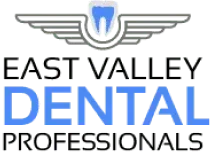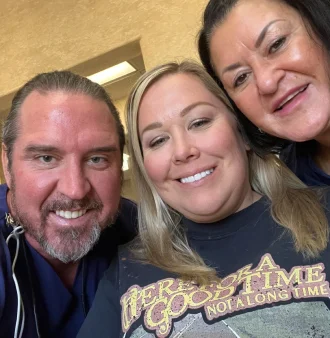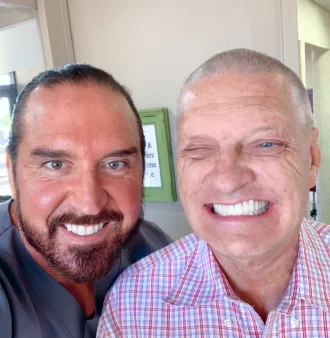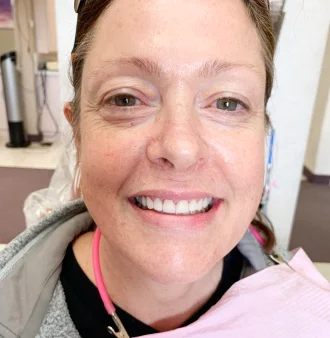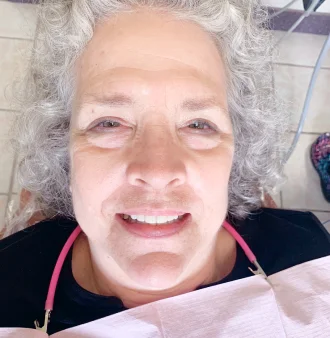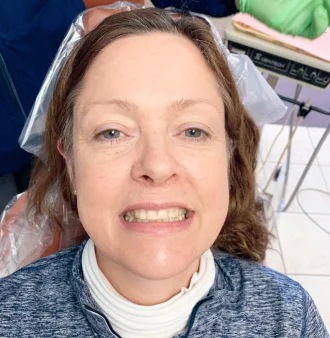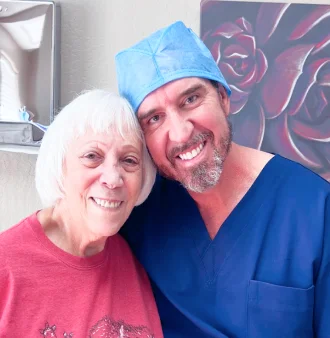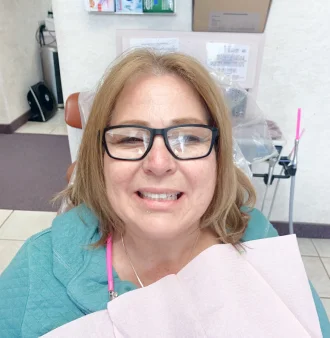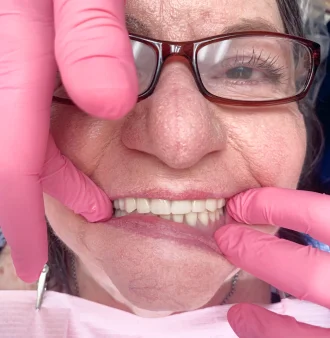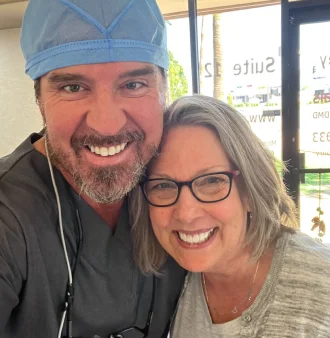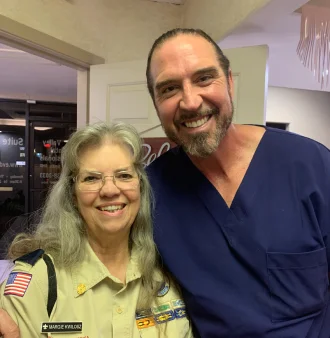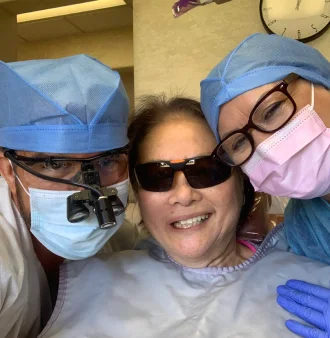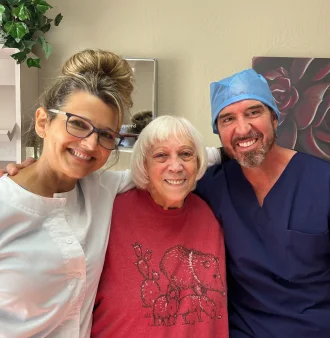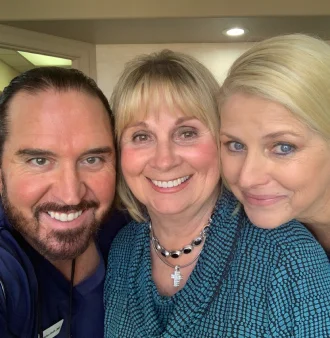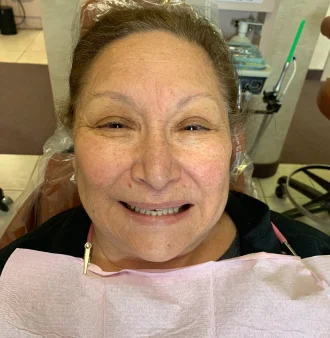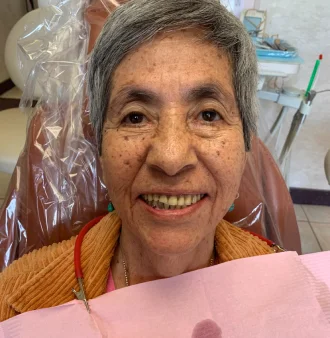Mesa Family Dentistry Dental Care for Your Entire Family
At East Valley Dental Professionals, you are much more than just a number. Your health, concerns, and overall dental experience are of the utmost importance to us. As a top-notch family dentistry, our team of professionals will ensure that the time you spend here is as productive and comfortable as possible.
There are many benefits to working with our team of family dentistry specialists. Many dental conditions such as gum disease, tooth decay, and misaligned teeth can be hereditary, so working with whole families helps provide us with the necessary information to proactively prevent problems or provide early intervention for a number of dental issues.
Benefits
- Streamlined Dental Care: Family dental practices can treat parents and children, streamlining appointments and simplifying healthcare.
- Caters to a Range of Dental Needs: From pediatric dentistry to adult cosmetic procedures and geriatric dental care, family dentists can address them all.
- Fosters Dental Hygiene Habits: A family dentist can instill good dental habits in children from a young age, emphasizing preventive care.
- Continuous and Comprehensive Monitoring: Having a single dental practice monitor the dental history of the whole family can lead to effective treatment plans.
- Comfort and Familiarity: Regular visits to the same dental office create a sense of familiarity and comfort, reducing anxiety associated with dental treatments.
- Convenient Scheduling: Family dentistry often offers flexible scheduling to accommodate busy family lifestyles, allowing for appointments for multiple family members.
What people say
about Us
I've been a patient for fifteen years and I couldn't imagine going elsewhere. Everyone is professional, kind and the best of the best! I've had most every oral procedure and each has been flawless.
They are always friendly, attentive, have quick service and respond quickly to questions.
EVDP is amazing, the patient care is top notch and they do beautiful work! I felt so taken care of as patient and strongly recommend their services!
The visit was great I hope I can come up with the money some he can fix my mouth for me. At 53 have never had a kinder Dr. in my mouth. Wish I had insurance so he could do my work today.
Everyone was helpful and kind. I appreciate the introductions of who people were. My stay was pleasant and I'm hopeful my tooth problem is resolved.
Working with our family dentistry specialists also provides the highest level of convenience. Making appointments, requesting records and billing for every family member in one place saves time and unnecessary headaches.
Our team understands and specializes in the unique and specific oral and dental needs of each age group. For instance, our youngest patients need to learn the basics of good oral hygiene, while our more mature patients are more susceptible to gum disease, tooth decay, dry mouth, and receding gums. Adolescents may need to have braces applied to address misalignment or have their wisdom teeth removed, both of which are best addressed by regularly scheduled dental visits.
We enjoy working with families because it allows our teams to develop long-term relationships with our patients. We get to see our patients grow and attend to their dental needs through every age transition. We strive to give the best possible dental treatment to each patient entrusted to our care. As a true family practice, we interact with people of all ages and backgrounds. Please contact us today to set up an appointment with our team!
Pediatric dentistry
“Make our pediatric patients feel comfortable is the beginning of a healthy and happy smile for many years.”
Pediatric dentistry requires age-specific knowledge and experience as well as a gentle and patient bedside manner. Our team works together to create a warm and friendly environment where children of all ages feel comfortable. We understand that taking the time to make a child feel welcome can be the difference between looking forward to going to the dentist or dreading it. We approach our pediatric patients with long-term goals in mind. Making our smallest patients excited to come to our office will give them the foundation for a lifetime of healthy dental care. Teaching children proper preventative care can mean the difference between a happy healthy smile for many years to come or struggling with poor oral hygiene and potentially expensive corrections down the road.
When we work with pediatric patients we work with the patient’s entire dental lifespan in mind. The teeth can often indicate potential issues that have already occurred such as discoloration due to a sudden impact or cavities that indicate lack of proper care. The present state of the teeth gives us a starting place and an opportunity to educate the child on any needed techniques such as flossing that can help improve his or her oral health. The condition and placement of the teeth also provide valuable insights as to potential issues in the future. Pediatric dentistry comes with its own set of issues that a dental team needs to watch out for. Thumb sucking and pacifier use can cause front teeth to bow out and forward. Tooth decay can be caused by bottle use for long periods of time. A common practice of giving a baby a bottle of juice at bedtime can create an acidic environment leading to decay and cavities. For our older pediatric patients, quality care and screening can give advanced warning of things such as impacted wisdom teeth or the possibility of braces in the future. Our team will work with you and your child to achieve the optimum oral health possible and install the knowledge that your child can use to proudly care for his or her teeth and gums for years to come.
Adult dentistry
Adult dentistry is common, but critical part of maintaining lifelong oral health and can’t be ignored. We find our adult patients have a wide range of feelings from relaxed to terrified when it comes to going to the dentist. We work hard to put every patient at ease and make sure you feel comfortable and cared for. Our team understands that your comfort level is important so that you never dread coming to see us. This will make it much more likely that you’ll visit us every six months for your regular checkup and cleaning. Regular dentist visits are the best way to maintain your optimum oral health and keep costs down. A simple cavity can progress into a potentially expensive root canal or worse if it is not caught early. We treat all of our adult patients with kindness and respect. We hope to impart our knowledge and oral health care techniques so that your teeth are healthy and sparkling for years to come.
Geriatric Dentistry
Geriatric dentistry requires a wide range of knowledge and dental expertise.. Our older population is keeping their teeth for much longer due to advances in care and prevention. Proper geriatric dentistry needs to include adult specific knowledge as well “as a wide range of skill involving alternate options such as prosthetic teeth, dentures, bridges, and crowns. Each of these options has pros and cons and are situationally specific depending on the patient’s needs. Our team can guide you through the many choices available if you are in need of support for, or replacement of, your existing teeth.
As we age, our overall health and individual conditions must be taken into consideration when examining dental health. As people get older they are more likely to take prescription medications. These medications need to be discussed and taken into account whenever a treatment plan is being made. Some medications can cause patients to suffer from dryness of the mouth or other conditions that could make dental treatment uncomfortable. Our team will take the time to analyze these conditions and make your experience as pleasant as possible. Our family focused team can skillfully guide a geriatric patient through his or her options and execute a well-designed treatment plan to keep your teeth and gums healthy.
Our team puts their best feet forward when it comes to dental techniques, advances in our field and up to date training. But we also put our all into welcoming every person that walks through our door as though they are family. We understand that no matter your age, going to the dentist can be a challenge. Your comfort and dental health are our top priorities. Whether you are a child, parent or grandparent, we want you to look forward to seeing us, as much as we look forward to seeing you.
Your Smile's Happy Place! Come visit us and see why
Fun atmosphere, friendly staff, and zero dentist nightmares
